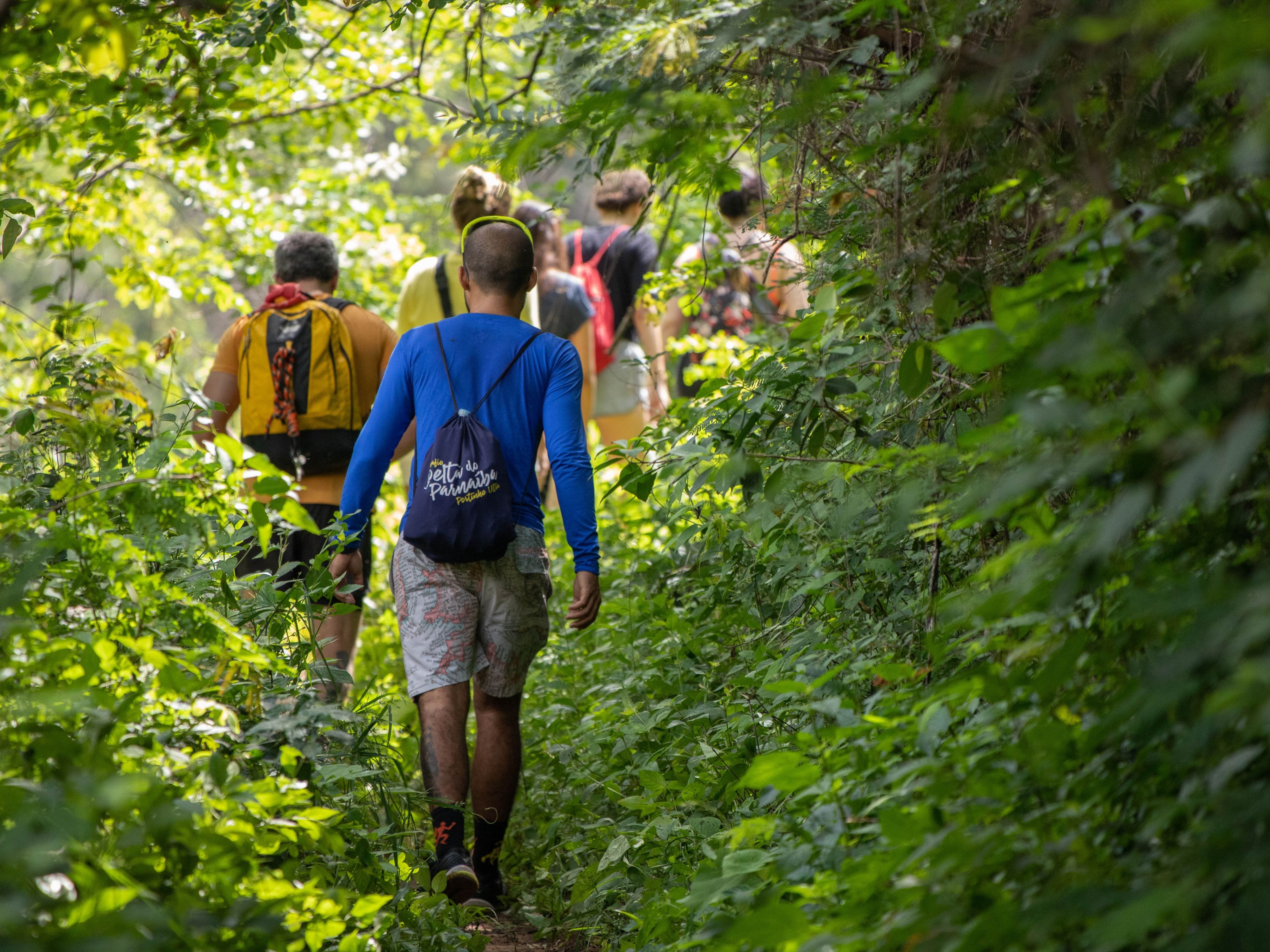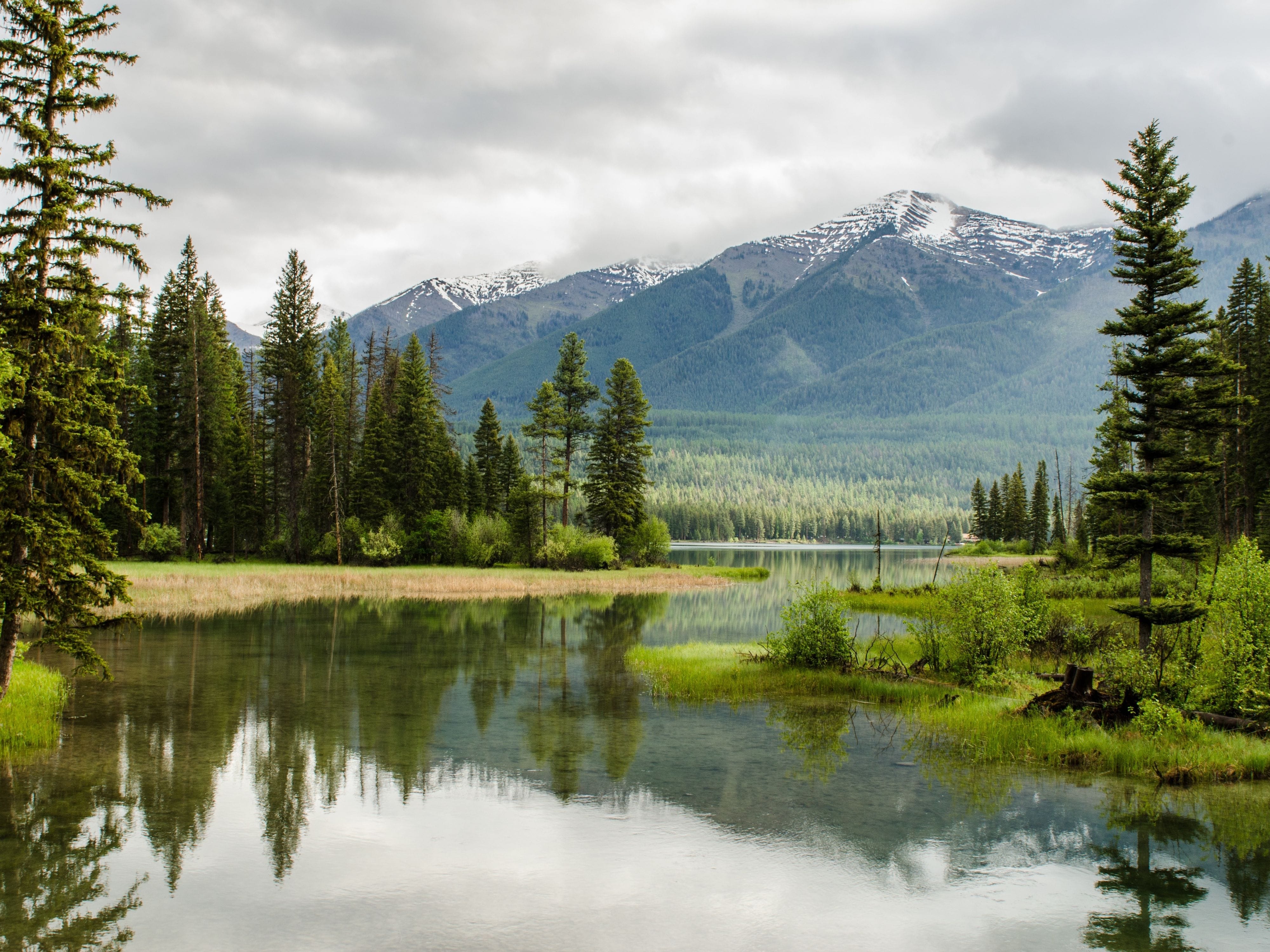This swipe-and-scroll world has brought a lot of mental health challenges along. Stress, anxiety, and burnout are no longer rare experiences but everyday struggles for many.
But relief isn’t always found in expensive treatments; sometimes, it’s just outside our door. Stepping into nature offers a simple, powerful way to reset.
Let’s learn how nature walks can help improve mental health.

A Science-Backed Solution to Mental Health Struggles
Most working professionals today have back-to-back virtual meetings, endless email threads, and constant digital notifications. By evening, the mind feels exhausted, stress levels are through the roof, and relaxation seems like a distant memory.
According to the World Health Organization, depression affects more than 264 million people worldwide. Anxiety disorders impact an estimated 284 million individuals.
These aren't just statistics—they represent real people struggling to find balance and peace.
A Scientifically Proven Healing Approach
Research Insights
Multiple scientific studies have proven nature's remarkable impact on mental health:
Stanford University Study: Researchers found that 90-minute walks in natural settings significantly reduced brain activity in areas associated with depression. Participants who walked in natural environments showed lower rumination levels and decreased neural activity in the subgenual prefrontal cortex—a brain region linked to mental health disorders.
Ecopsychology Journal Research: A comprehensive study revealed that group nature walks were associated with:
Significantly lower depression levels
Reduced perceived stress
Enhanced overall mental well-being
PubMed Article: Participants with major depressive disorder demonstrated:
Improved memory span after nature walks
Enhanced mood
Potential supplementary treatment for depression symptoms
| Expert Opinion: Do you know of a case where regular nature walks led to noticeable mental health improvements? Lakshit Dhingra, a mental health professional on Pyng says, “Have you ever noticed how a simple walk can quiet a busy mind? When thoughts feel overwhelming, walking brings you back to your body, creating a sense of rhythm and control. It is one of the easiest ways to break free from overthinking—requiring nothing more than taking one step at a time. Many of my clients feel stuck because every new task seems too big to start. But walking? It doesn’t ask for a plan or a solution—it just asks you to move. And once you start moving, your mind begins to settle, making space for clarity and calm. Walking also helps on a deeper level. The steady movement—left foot, right foot—works like a natural reset for the brain, similar to EMDR therapy, which helps process difficult thoughts and emotions. It also brings mindfulness, letting you focus on the sound of your breath, the feel of the ground beneath you, and the world around you. Real change doesn’t always come from big decisions but from small habits like this. So, if you ever feel stuck, what if instead of searching for answers, you simply took a walk? Maybe this is why great thinkers like Aristotle, Nietzsche, and Thoreau turned to walking for inspiration. It is more than just moving—it’s a way to clear the mind and make sense of emotions. I’ve seen my clients return from a walk feeling lighter, their worries less overwhelming. With each step, they let go of the need for instant answers. Walking teaches patience—it reminds us that clarity often comes slowly, in the rhythm of steady movement. As Rebecca Solnit said, “Walking is how the body measures itself against the earth.” And perhaps, it’s also how we find space within ourselves. So, the next time you feel stuck, ask yourself: what if moving forward wasn’t just a thought, but an action?” |
How Nature Boosts Mental Healthiness

Think of your body as a complex machine that's always working to keep you healthy and happy. When you step into nature - whether it's a park, garden, or forest - amazing things start happening inside your body.
Stress Relief the Natural Way
Remember how a warm hug from a loved one makes you feel better? Nature works in a similar way. Here's what happens:
Your stress levels drop naturally
Your breathing becomes slower and deeper
Your muscles begin to relax
Your heart rate becomes steadier
Happy Chemicals in Your Brain
Nature walks stimulate the production of key neurotransmitters:
Serotonin: The happiness neurotransmitter
Dopamine: Associated with pleasure and motivation
GABA: Helps reduce anxiety and promotes calmness
What This Means for Your Daily Life
Let's look at some real situations where nature's effects can help:
Better Brain Power
Fighting Mental Tiredness: After a long day of staring at screens, even a short walk under trees can help your brain feel fresh again.
Sharper Focus: Just like cleaning your glasses helps you see better, time in nature helps clear mental fog. Students who study near parks often find it easier to concentrate.
New Ideas Flowing: Have you noticed how good ideas often come when you're relaxed? Nature creates the perfect setting for creative thoughts to bubble up.
Emotional Benefits
Think about how different places affect your mood. A busy shopping mall might make you feel stressed, while a peaceful garden helps you feel calm. Nature helps by:
Lifting Your Mood: Just like how sunny weather can brighten your day, regular time in nature helps maintain a positive outlook
Building Inner Strength: Similar to how exercise makes your muscles stronger, nature experiences help build emotional strength
Managing Tough Feelings: Nature provides a gentle space to process difficult emotions, like a quiet friend who just listens
Expert Perspectives
Dr. Qing Li, a leading expert in forest medicine, stated:
"The quiet atmosphere, beautiful scenery, good smells and fresh, clean air in forests all contribute to the effects."
Danielle Shanahan, a research fellow at the University of Queensland in Australia, says:
“If everyone were to make time for nature, the savings on health care costs could be incredible.”
Ming Kuo, an environment and behaviour scientist at the University of Illinois at Urbana-Champaign, says:
“When you have a short blast of nature exposure, people’s moods go up.”
Practical Ways To Connect With Nature
For Busy Professionals
Micro-Nature Breaks
10-minute walks during lunch
Desk plants
Window views of green spaces
Brief park visits
Weekend Nature Experiences
Local hiking trails
Botanical gardens
Community parks
Nature photography
Gardening activities
For Urban Dwellers with Limited Access
Balcony or windowsill plant cultivation
Virtual nature experiences
Indoor plant collections
Nature documentaries and meditation apps
The Social Side of Nature Walks
Nature walks aren't just a solo activity. They can be incredible social experiences:
Join local walking groups
Invite friends for weekend nature walks
Participate in community garden projects
Take family walks in local parks
Overcoming Common Barriers
Time Constraints
Start with 10-15 minute experiences
Combine nature time with other activities
Priorities quality over quantity
Physical Limitations
Sit near an open window with a view of trees
Grow indoor plants
Watch nature documentaries
Use nature sounds or meditation apps
Long-Term Mental Health Investment
Regular nature interaction offers cumulative benefits:
Reduced chronic disease risk
Enhanced cognitive function
Improved immune response
Better emotional regulation
Increased life satisfaction
A Holistic Approach to Mental Wellness
Nature connection isn't a miracle cure but a complementary approach to mental health. It works best when integrated with:
Balanced lifestyle
Proper nutrition
Regular exercise
Quality sleep
Social connections
Your Action Plan
Schedule your first nature walk this week
Start small and be kind to yourself
Leave your phone behind or on silent
Pay attention to how you feel before and after
A Call to Nature
Mental health is a complex, personal journey. Nature offers a gentle, accessible pathway—one that doesn't judge, demand, or complicate. It simply invites presence, observation, and connection.
Your mental wellness journey begins with a single step—into nature.




